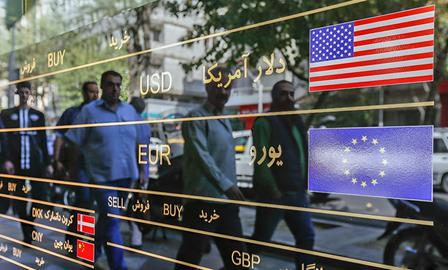Hassan Rouhani’s victory in Iran’s presidential election signals the end of Mahmoud Ahmadinejad’s presidency. However Ahmadinejad’s economic legacy will continue, plaguing the new administration from its very outset.
Iranians have cause to be hopeful, as Rouhani won on a platform of moderation, easily garnering 18 million votes. He campaigned as a veteran diplomat and a jurist endorsed by two former presidents, Akbar Hashemi-Rafsanjani and Mohammad Khatami, as well as another presidential hopeful, the reformist Mohammadreza Aref.
Many Iranians believe a new direction is now possible for the country. The Tehran Stock Exchange Index rose on Saturday, Iran’s rial gained against the dollar and gold prices went down, all reflecting a major shift in the mood of the business community. Iranians are choosing to invest instead of saving for unpredictable days. Tehran’s Bazaar is hopeful, and the future seems brighter, or at least less bleak than last Thursday. However one must ask if this optimism is well founded. To many it seems Rouhani’s honeymoon as the president-elect was over Saturday.
After eight years under Ahmadinejad, neither Iran’s economy nor its infrastructure are in good shape. Iran has become more isolated in the world and global sanctions have astronomically increased the cost of international trade and banking transactions. Today Iran cannot receive its oil revenues via banks, and is forced to deposit millions of dollars with those who buy its oil. These countries, led by the example of China, prefer to pay Iran in commodities rather than hard currency. But Iran does even get to choose the commodities it needs; it must accept whatever is offered.
Unemployment is on the rise and some Iranian economists predict the size of unemployed population will soon pass 10 million. Iran’s comparative advantages in regional markets have been compromised by its isolation and its neighbors’ frantic rush to build ports, airports and to develop economic infrastructures. Two decades ago Iran expected an equal share of oil reserves in the Caspian Sea and was planning to be the transit hub for products and transportation in the region. Today these are all foregone dreams.
Internally Ahmadinejad altered the economic policy making process in Iran. He dismantled the Management and Planning Organization, a stronghold of technocrats and replaced growth-oriented economic planning with a populist approach that drove up inflation. His slogan was one Iranians loved to hear: Economic justice for all. In practice meant low interest rate loans for small businesses, local projects and paying cash subsidies to Iranian households. These increased the government’s fiscal burden enormously. Ahmadinejad solved the problem by borrowing heavily from Central Bank and relying more than ever on oil revenues. The supply of money increased by six fold during his eight years in office, causing double-digit inflation. Meanwhile, Iranian manufacturers were losing their local markets to competition from China. Many have had to shut down their factories.
Iran is not on the edge of an economic crisis, it is in the middle of one already. Rouhani’s first task is to find a way to prevent further deterioration of the economy before trying to resurrect it. He has the support of the business community and many technocrats. However his policy options are limited both in their effectiveness and range. He is facing a new economic structure in Iran, one mainly shaped during Ahmadinejad’s time in office. The role of government agencies and military organizations such as Islamic Revolutionary Guards Corps (IRGC) has increased significantly in the economy in the past decade. Today the IRGC takes the vast majority of public contracts and oil projects and owns a wide range of businesses and assets in Iran, either directly or via its subsidiaries. The economy, in effect, is now in the hands of semi-governmental institutions tied to the military, a transformation that has undermined privatisation and made real competition by non-state affiliated firms virtually impossible.
Rouhani's administration will also have to deal with institutionalized sanctions. Several countries including the United States have passed legislation banning trade with Iran, making it illegal to exchange any product and services with the country. These legal measures have been interpreted liberally, severing even academic and cultural exchanges with Iran in some cases. Many expect resolving the nuclear standoff with Iran will eliminate these sanctions. And that this will in turn solve these myriad economic problems. History, however, warns against such optimism. There is no golden key to Iran problems. No government is poised to fare well, when faced with an economy so hobbled from within and without.
It is far too early to celebrate Hassan Rouhani's victory.
visit the accountability section
In this section of Iran Wire, you can contact the officials and launch your campaign for various problems





















comments